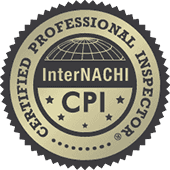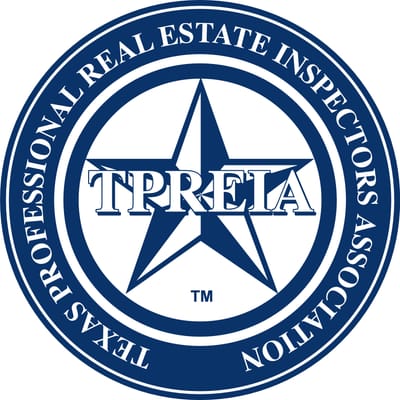J Bair Home Inspections LLC
Congratulations on finding your new home! Now take what many consider the most important step... and let's get it inspected!
Our goal at JBair Home Inspections is to provide an honest, unbiased and objective inspection to ensure you have the information you need to make an informed decision when it comes to buying your new home.
Allow me the privilege to inspect your Dream Home so it doesn't become your Nightmare.
Call or Text now 214-263-6446
Serving Dallas, Tarrant, Ellis, Kaufman counties and Cedar Creek Lake !
Services
Home Inspection services
Sellers Inspection
Why not know before you sell? There are many advantages to pre-listing or sellers inspection!
Learn MoreFollow-up inspection
A complete follow-up inspection of items that were found deficient and subsequently repaired and or replaced.
Learn More11th Month Inspection
Before your warranty expires let's give that dream home an inspection!
Learn MorePricing
I publish prices, because I value your time! You should not have to wait for a quote!
Pricing is based on the square footage of the home. I will spend 3-4 hrs inspecting most homes and more time after that writing your report ensuring that all items I have noted are communicated to you, I do not and will not rush through your inspection.
Base Prices per square foot, be sure and contact me and let's talk about what I can do to help you.
| 750 - 1300 | $325 |
| 1301 - 1800 | $375 |
| 1801 - 2400 | $400 |
| 2401 - 2800 | $450 |
| 2801 - 3000 | $500 |
over 3000 .17 per square ft. call for Quote Today 214-263-6446
Additional Fees
| Pier and Beam (crawl space) | $100 | |||
| Home built prior to 1950 | $50 | |||
| Additional buildings on-site | $25 | (with no electrical or plumbing) | ||
| Additional buildings on-site | $50 up to 200 sqft | (with electrical or plumbing) | ||
| Re-Inspection fee up to 10 items | $125 | |||
| Trip Charge | $125 | (no fault of the buyer) | ||
| Irrigation / Sprinkler | $45 | |||
| Pool | $100 | |||
| Spa | $50 | |||
Discounts because... we all like a good deal!
Veterans 25.00
Teachers 25.00
First Responders 25.00
Subsequent inspections 50.00 discount
1 discount or coupon per inspection
Cancelation fee of 75.00 will apply for appointments canceled by the client with less than 12 hrs notice. No fee to reschedule if needed.
* all prices are subject to change and additional costs may be added due to the condition of the property, we will discuss this prior to your inspection... there will be no surprises or hidden costs.
About Us
My past experience as a US Air Force avionics tech., quality optics inspector, carpenter, and power transmission inspector give me the attention to detail and mature experience you need. I am a recently retired Customer Service manager which now affords me the time to do the most complete and comprehensive home inspection on the market today.
JBair Home Inspections is ready to go to work for you. Detailed and thorough I will inspect your home as if I were inspecting my daughters home. My goal is to give you as much information as quickly as I can to help you understand the condition of your new home and to help you make one of the most important decisions of your life.
Schedule Your Inspection!

Contact Us
Text me anytime!
- Available most evenings! I answer the phone from 7-10 daily! You shouldn't have to miss work to meet up with me. If you can't be there for the inspection, meet me at the end of the inspection!
- 214-263-6446 - Jerry Bair Owner/ Inspector TREC #23435
- jerry@jbairinspections.com
- M-F 8am- Sat 8 am-4 pm Sun 1pm-8 pm
Testimonials
Certifications
Certifications and Associations
Schedule Inspection
Times are for online booking only! I can meet your needs at anytime feel free to call or text 214-263-6446 between 7:00 AM and 10:00 PM If you book online please note pricing may change due to unknown conditions of the property to be inspected.Read More
- Category: Home Inspection
- Service Length: 04:00 Hours
- Price:Free
Your Inspection
Where the property is located.
The age of the property if known.
The Sq footage of the property.
Is the property occupied.
Size of property, if fenced is the fence the property owners or a boundary.
Have you seen the property.
Do you have a copy of the sellers disclosures.
Any special concerns you may have with the property.
Utilities in use on the property.
Type of roof covering.
Type of Heating and A/C
Any special systems in place like alarm systems or smart technology.
Any out buildings like a shed or storage that you want inspected
Is there a pool or spa and would you like them inspected?
The parties involved
Who is the buyers agent and contact information.
Who is the sellers agent and contact information.
What is the option period and what is the date.
When are you available to do the inspection with me ( I want you there! )
I will ask that you sign the JBair Home Inspection agreement before the inspection is started, this may be done electronically if desired, or if you may meet me at the property before I begin. Remember I want you there!
I will also ask for payment before the report is delivered. I except credit cards, checks or cash!
Home Inspection Q&A

A home inspection is an examination of the physical structure and systems of a home, which provides a detailed “snapshot” of the condition of the home on the day of the inspection. A home inspection helps to reduce some of the risk involved in purchasing a home, but it cannot eliminate these risks, nor can the home inspection anticipate future events or changes in performance due to changes in use or occupancy. The home inspection will cover any potential health and safety issues as well as areas in need of repair or replacement. If you are in the process of buying a house, townhouse, condominium, etc. you should have it properly inspected before the final purchase.
Home Inspectors must be licensed by the Texas Real Estate Commission (TREC) and are required to comply with the TREC Standards of Practice when home inspections are performed. The Standards of Practice are the minimum levels of inspection required of inspectors for the accessible parts, components, and systems typically found in homes. The home inspection is visual only. While there may be other parts, components or systems present, only those items specifically noted as being inspected on the report are inspected. The home inspection report may address issues that are code-based or may refer to a particular code; however, it is NOT a code compliance inspection and does NOT verify compliance with manufacturer’s installation instructions. Although some safety issues may be addressed in this report, the inspection is NOT a safety/code inspection, and the inspector is NOT required to identify all potential hazards.
In the report, the home inspector will note which systems and components were Inspected (I), Not Inspected (NI), Not Present (NP), and/or Deficient (D). General deficiencies include inoperability, material distress, water penetration, damage, deterioration, missing parts, and unsuitable installation. The inspector may provide comments whether or not an item is deemed deficient. The inspector is not required to prioritize or emphasize the importance of one deficiency over another.
Items identified in the report do not obligate any party to make repairs or take other action, nor is the purchaser required to request that the seller take any action. It is not a pass or fail grade for a home. The decision to correct a hazard or any deficiency identified in an inspection report is left to the parties to the contract for the sale or purchase of the home.
Note: There will more than likely be several items that the inspector must report that are related to building codes or safety issues that very few homes will comply with. These conditions may not have violated building codes or common practices at the time of the construction of the home, or they may have been “grandfathered” because they were present prior to the adoption of codes prohibiting such conditions. However the inspector is required by TREC to report these items as deficient if found not to comply.
Here are eight reasons to have a home inspection before you buy:
- Don’t Judge a Book by Its Cover
- Save Money
- Uncover Safety Issues
Some issues that are discovered during a home inspection are actually quite common. Issues such as improper electrical wiring, aging roofing material, defective windows, and plumbing deficiencies are just a few of the most commonly found home inspection issues. The purpose of a home inspection is not to make sure that every last thing in a home is perfect to your liking, however, it’s important that the home inspection determines the home has no glaring safety issues.
- Discovery of Wood Destroying Insect “Termites” Problems
Some home inspections will include a wood destroying insect inspection and others will not. Be sure to ask your real estate agent whether or not they have any home inspectors or pest inspection companies who can make sure the home you’re purchasing does not have any pest or insect problems.
- Negotiate
- Seller’s Repairs
- Know What You’re Buying
- Provides An “Out”
There are some circumstances where a buyer does not feel comfortable with the findings from the home inspection and will not proceed with the transaction, no matter what concessions and repairs are offered from a seller. The home inspection, in most cases, provides an “out” for a buyer if they are not comfortable, which is another reason for having a home inspection when buying a home. While it is rare that a buyer gets “cold feet” after an inspection, it does happen.
- Final Thoughts
Just like you should interview a buyer’s agent when buying a home, you should contact potential home inspectors to ask them questions. Some questions and things you should consider asking a home inspector include:
Can you provide references or testimonials?
Can I be at the home inspection?
What does your inspection include?
Can you send me a sample of your inspection report?
What sets you apart from other inspectors?
Why you need a Home Inspection
Cheapest Inspection?
TREC Consumer Protection Notice
Standards of Practice
Real Estate Inspector Standards of Practice (SOP)
Click the link above to read the standards of practice for Texas home inspectors.
Real Estate Inspectors licensed in Texas are required to follow the Standards of Practice (SOPs), which are established by TREC rules 22 TAC 535.227 - 535.233.
The SOPs define the minimum requirements for a real estate inspection performed for a prospective buyer or seller of one to four-family dwelling.
Agreement and reports
Sample Agreement
Sample agreement that you must agree to and sign prior to the inspection!
Sample Report
Coming Soon








